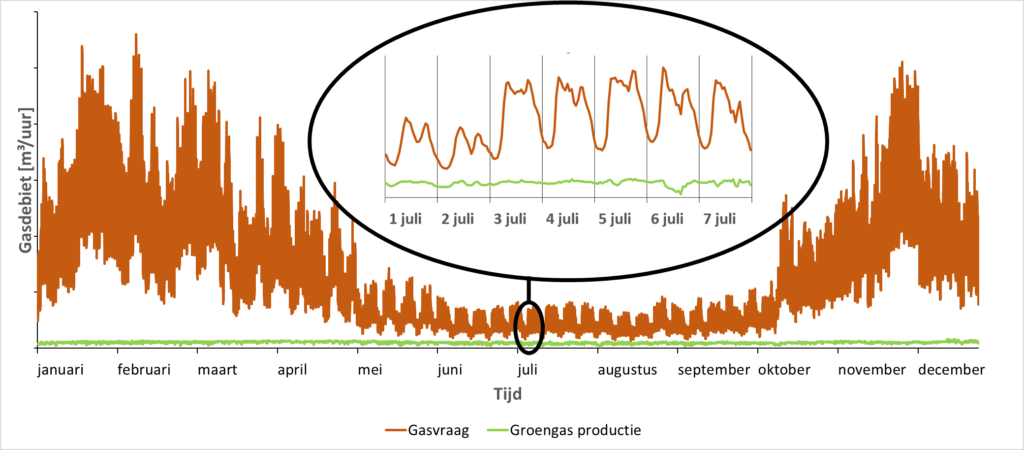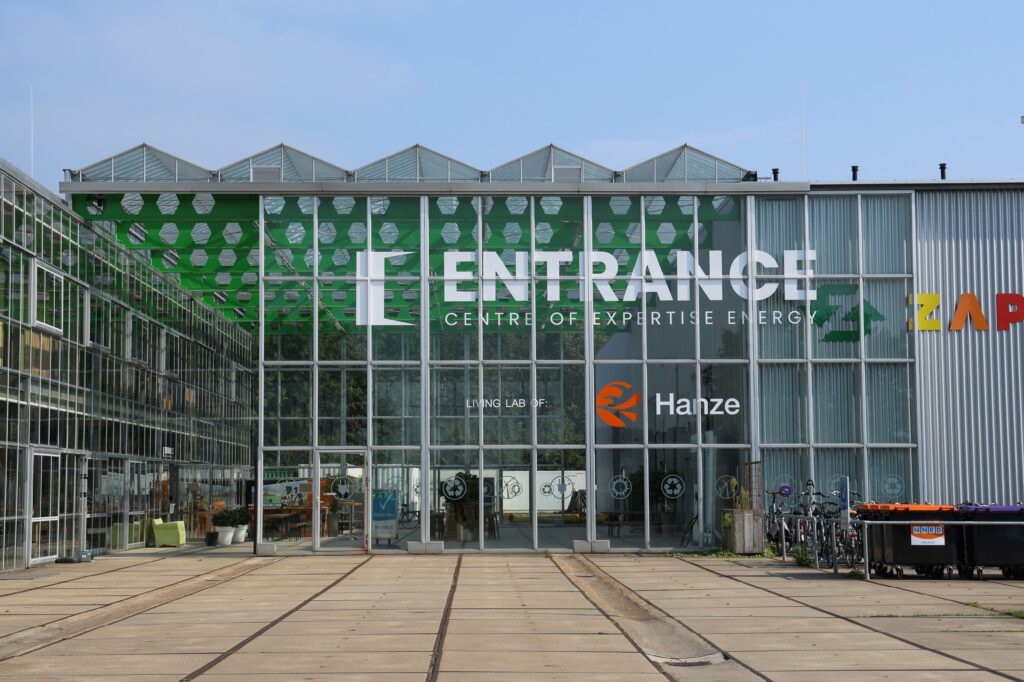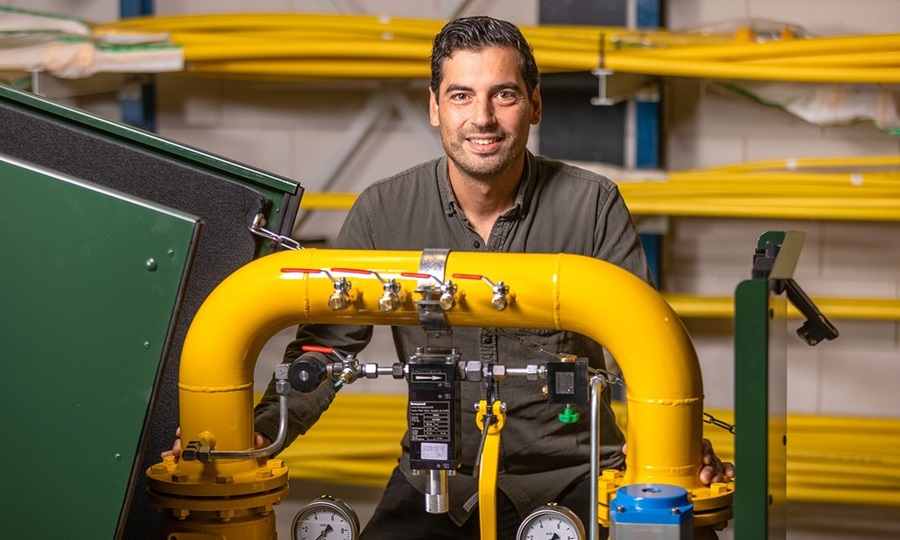The future of the transition to sustainable energy.
Picture: Orange Pictures
Dutch universities of applied sciences started a pilot in 2023 for their own doctoral program, the so-called “Professional Doctorate” (PD). This new four-year program focuses on practice-oriented research. Twenty-five universities are participating in the pilot across 7 different domains. Within the Energy & Sustainability domain, Sander Dijk from Entrance is conducting research into promoting green gas injection into the Dutch gas network.
Green gas as an alternative for natural gas
In the Netherlands, natural gas is still widely used as an energy source. A CO2-neutral alternative to natural gas is green gas. To meet the Dutch goals for green gas usage, we need to significantly scale up its production in the upcoming years.
Sander: “In the Netherlands, we still consume a considerable amount of natural gas annually, and we want to move away from that. However, that doesn’t mean we should stop using all types of gas. One of the more well-known alternatives to natural gas is hydrogen, but another possibility is green gas.
Green gas is upgraded biogas, produced by the fermentation or gasification of plant-based biomass or waste products and/or animal manure. If you then bring that biogas up to natural gas quality, you can call it green gas and inject it into the natural gas network. This injection is already happening, and it actually needs to grow by 20 percent per year. However, the growth is lagging behind the target, and this has several causes, including limitations on the gas network.”
Balance of supply and demand
Green gas is injected into the existing gas network and supplied to consumers via this network. This brings several challenges for grid operators, including the balance between supply and demand and the emergence of grid congestion in the gas network.
Gas demand fluctuates and is weather-dependent, meaning there’s higher gas consumption in winter than in summer. Gas consumption also fluctuates during the day. The supply of green gas is continuous due to the fermentation process during green gas production. This process thrives under constant conditions and has a relatively long lead time. This causes energy flows to become imbalanced, leading to a surplus primarily in the summer and a shortage in the winter.

Furthermore, green gas production primarily takes place de-centrally, and the gas network’s design did not account for this. This also presents challenges in effectively transporting and distributing the produced green gas within the network. With this Professional Doctorate (PD) trajectory, Sander aims to promote the growth of green gas without unbalancing the energy network or causing congestion.
Collaboration with the professional field
Sander works together with grid operators Rendo and Coteq. Sander: “Just like other grid operators, they try to solve the challenges within the gas system by better connecting grids to increase the transportation movement and the sales area of gas. During this program, I also research possibilities that could be outside the gas system, for example, by connecting the gas network to the electric or heating grid by turning it into biofuel for the transport sector.”
Before joining Hanze in 2017, Dijk worked for ten years as a grid operator on the gas network. “The fact that, within the PD (Professional Doctorate) program, you’re going to implement an intervention in a professional setting, was an opportunity for me to contribute to the energy transition on an issue whose context I deeply understand. This gives me a chance to really make an impact on practice, research, and education.”

Want to know more?
> More information about Professional Doctorate Energy & Sustainability
> Read the interview of Sander Dijk about his research
Downloads
When downloading these documents, please note:
This work by Sander Dijk e.a. is licensed under CC BY 4.0
Contact information
Want to get in touch with Sander Dijk for more information about this Professional Doctorate (PD) program? You can send an email to sa.a.dijk@pl.hanze.nl or call 050 – 595 27 62.
Curious about the opportunities for a PD program within the Energy & Sustainability domain? Contact us at j.aue@pl.hanze.nl.

Duration: 2024 -2028
Partners: Rendo, Coteq, Vereniging van Hogescholen
Theme:
System integration
Renewable fuels and sustainable gasses
Involved professorships:
Sustainable gasses and fuels
Energy transition
Developing an innovation roadmap for small-scale wind energy, commissioned by TKI Urban Energy.
Which policy instruments can European cities utilize to promote the implementation of Positive Energy Districts?
How can the Dutch energy market be organized, in order that it joins the changing energy system? This is a central question at the project MODES (Market Organization of the Dutch Energy System).
